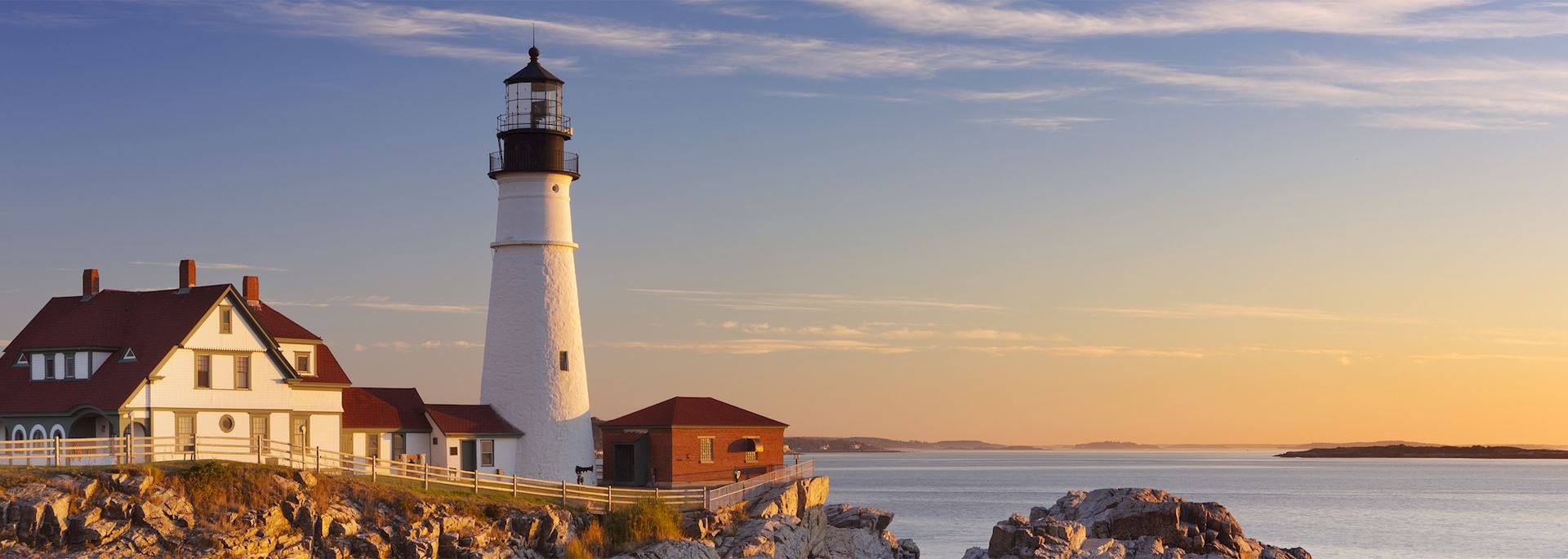Practical Information
The United States of America is the third largest country on Earth, covering 3,717,000 square miles. Bounded by both the Atlantic and Pacific oceans and stretching from the Gulf of Mexico to the Bering Sea, the USA truly encompasses tropical, temperate and Arctic climates.
The diversity of scenery and wildlife cannot be under-estimated; deserts, mountains, prairies, beaches and vineyards are all here. The cities are non-stop and provide some of the world's finest museums, art galleries, shopping, entertainment and restaurants.
Whilst deemed a nation of the ʺNew Worldʺ, indigenous peoples have lived here for millennia and there is a rich history of European settlement — the French influence in Louisiana, the Spanish influence in California and, of course, the British influence that is most tangible in New England.
Contrary to many expectations there are many totally unspoilt regions that are off the beaten track, providing a unique insight into life here that makes exploring this diverse nation so rewarding.
Communications
Please be aware that cell phone service can be very intermittent in rural areas. Most hotels have Wi-Fi and some have terminals that you can use. For areas where cell phone coverage isn’t available, you may wish to consider renting a satellite phone. If you’re visiting the US from abroad, it’s best to check with your network provider about the international roaming facilities before you depart.
Food & drink
Across the country, you’ll find many wonderful regional specialities as well as one of the widest selections of international cuisine anywhere on the planet. New England is renowned for its lobsters and clam chowder, Texas for huge juicy steaks, the South for its Cajun cuisines, the Pacific coast for its seafood and the Southwest for its Mexican and Native American influences. There are many specialist breweries, wineries distilleries and gastropubs featuring all locally produced wine and spirits.
Public Holidays
Public holidays vary slightly between states, but the principal public holidays are shown below. Please note that on these days many shops, restaurants and public transport services will either be closed, extremely busy or operating limited services:
- January 1st - New Year's Day
- Third Monday in January - Birthday of Dr Martin Luther King Jr.
- Third Monday in February - Presidents' Day
- Third Monday in May - Memorial Day
- July 4th - Independence Day
- First Monday in September - Labor Day
- Second Monday in October - Columbus Day
- November 11th - Veterans' Day
- Fourth Thursday in November - Thanksgiving Day
- December 25th - Christmas Day
Tipping
Tips of around 20% are expected for all bar and restaurant service and about 10% should be applied to taxi fares. Hotel porters who have carried your luggage to your room expect a tip of around $2 per bag. It’s handy to have some $1 and $5 bills for this purpose.
Driving
Traffic laws and speed limits vary from state to state. When renting a car, all drivers will need to present a valid driving license at the time of rental (along with a government-issued passport if you’re visiting from abroad). Please note, you must also have a valid credit card (not debit card) for a security deposit payment in case of damage to the vehicle.
We include driving directions to all of the main places you’ll be visiting and, where possible, to individual accommodations. We recommend that you try to obtain more detailed maps for each individual area from the local tourist offices. Be sure to keep track of how much fuel you have in the tank and how far you’re planning to drive — on some routes, you might need to travel a long way before the next gas station.
Travel Advice
Our certified country specialists can advise on any safety concerns you may have. For current information, please refer to the State Department website.
When to go to The US
You'll find temperature and rainfall information, together with a month-by-month guide on visiting, on our guide for when to go to The US.
More Information
-
Flight Time
-
Time Zone
UTC -5 to UTC -10
